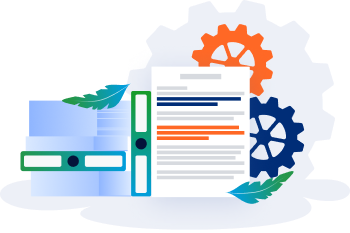
Smart Solution
There’s huge potential in using artificial intelligence for legal matters. This section includes:
- How AI is used in legal
- How AI helps with contract management
- How to choose legal software
AI can draft and review documents, or even propose changes that benefit the business. Training the AI to deal with mundane day-to-day matters allows legal professionals to focus on more complex and high-value work. Automating low-level document drafting even permits the transfer of these tasks to non-legal units with minimal risk.
What is meant by AI in legal?
In most cases, this means that AI is used to free lawyers from repetitive mundane work, such as drafting contracts. But it also can be used to predict legal outcomes or even suggest some recommendations for judicial decisions.
Does AI have legal rights?
At the moment, AI is not considered a legal entity, and thus it has no legal rights.
How is AI currently being used in law?
It is used to automate routine work, draft contracts, and scan or review databases of legal documents without constant human direction. CLM software like AXDRAFT is one example.
How will AI affect the legal profession?
It will replace certain day-to-day requirements lawyers while simplifying some responsibilities like contract drafting, document review, contract analysis, legal research, case outcome predictions.
What is legal NLP?
Legal NLP (Natural Language Processing) is an approach that translates plain language into “legalese” (and vice versa).